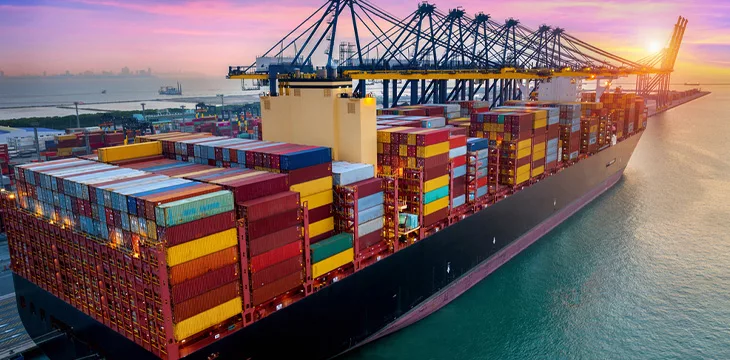|
Getting your Trinity Audio player ready...
|
Japanese shipping giant Mitsui O.S.K. Lines (MOL) has unveiled a new carbon insetting plan involving blockchain technology along its value chain.
The plan will involve tokenizing CO2 reductions stemming from using biofuels in its operations. Typically, shipping firms keen on reducing their carbon footprints turn to carbon credits, outsourcing the effort of environmental sustainability to another entity.
Rather than rely on outsourcing, MOL says it will focus on insetting through financing its climate protection projects by limiting CO2 emissions to the barest minimum. The company says it will augment its efforts with other carbon reduction methods, including using carbon credits and proper value chain management.
A key aspect of MOL’s plan is the reliance on blockchain for its insetting plans. Apart from tokenization use cases, the shipping company will utilize blockchain’s immutability and transparency to improve trust in its systems.
MOL relies on 123Carbon to design the blockchain system for insetting, with Verifavia and AllChiefs serving as third-party assurance and implementation partners, respectively. The shipping company turned to Canadian-based Methanex for biofuel, with pundits hailing the industry’s pioneering move.
“To achieve our global climate goals, we need more low carbon fuels and bio-methanol is one of the very promising solutions for the shipping industry,” remarked Jeroen van Heiningen, Managing Director of 123Carbon.
MOL’s insets rely on a book and claim model involving the separation of a company from the physical flow of its goods in sustainability claims. In MOL’s case, its products may be shipped on vessels that do not utilize biofuels, but the company may purchase insets akin to cases involving Sustainable Aviation Fuel (SAF).
A combination of blockchain and the book and claim model is expected to have several benefits, including achieving improved sustainable supply chains, lowering costs, and allowing enterprises to achieve their desired CO2 reduction rates.
Tokenized green bonds gather steam
The concept of tokenized green bonds has gathered significant steam in recent months, with several jurisdictions turning to the offering to reap a range of benefits.
Still basking in the wins from its 2023 offering, Hong Kong launched a second tokenized bond, racking sales of over $750 million.
“It also showed the potential in DLT to enhance efficiency, liquidity, and transparency in bond markets,” said the HKMA in a previous report.
Hitachi (NASDAQ: HTHIY), GF Securities, and the Philippines Treasury Bureau have indicated plans to float their versions of tokenized bonds designed to be energy efficient while lowering the barriers toward participation.
Watch: CoinGeek TV with Tokenovate’s Richard Baker & John Anderson

 02-25-2026
02-25-2026 




